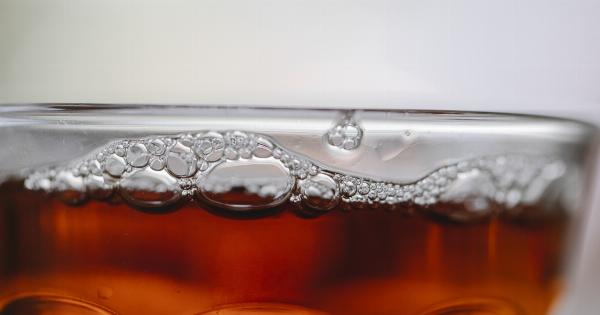Alcohol has been a part of human culture for thousands of years. It is used in religious ceremonies, social events, and for relaxation. Despite its prevalence, there are many myths surrounding alcohol and its effects on the body.
In this article, we will explore some of the most common myths about alcohol and provide evidence-based information to debunk them.
Myth 1: A drink a day is good for your health
While it is true that moderate alcohol consumption has been linked to some health benefits, such as a lower risk of heart disease and stroke, it is important to note that these benefits are only seen at very low levels of consumption.
The recommended limit for moderate drinking is one drink per day for women and two drinks per day for men.
Drinking more than this amount can actually increase the risk of a number of health problems, including liver disease, certain types of cancer, and high blood pressure.
Furthermore, the health benefits of alcohol can be achieved through other means, such as exercise and a healthy diet, without the negative consequences of alcohol consumption.
Myth 2: Beer is less alcoholic than wine or spirits
Many people believe that beer is less alcoholic than wine or spirits because it is typically consumed in larger quantities. However, the alcohol content of beer can vary widely depending on the type of beer and the brewing process.
On average, beer contains around 5% alcohol by volume (ABV), while wine contains around 12% ABV and spirits like vodka and whiskey contain around 40% ABV.
This means that a standard beer actually contains about the same amount of alcohol as a small glass of wine or a single shot of spirits.
Myth 3: Coffee can sober you up
Many people believe that drinking coffee can help them sober up after a night of drinking. However, this is a myth.
Caffeine, the active ingredient in coffee, is a stimulant that can temporarily mask the effects of alcohol. However, it does not reduce the amount of alcohol in your system or speed up the metabolism of alcohol.
The only thing that can sober you up is time, as the body needs time to process and eliminate alcohol from the system.
Myth 4: Mixing different types of alcohol will make you drunk faster
Many people believe that mixing different types of alcohol, such as beer, wine, and spirits, can lead to a quicker and more intense intoxication. However, this is a myth.
What actually matters is the amount of alcohol you consume, not the type. Consuming different types of alcohol may result in a higher total calorie intake, which can lead to drunkenness if you consume too much.
But mixing different types of alcohol does not influence the rate at which your body absorbs or processes alcohol.
Myth 5: Drinking alcohol will warm you up
Many people believe that drinking alcohol will warm them up in cold weather. While alcohol can make you feel warmer, it does not actually raise your body temperature.
Alcohol dilates blood vessels near the skin, which increases blood flow and can make you feel warmer. However, this effect can actually lead to a decrease in core body temperature, which can be dangerous in cold environments.
Myth 6: Drinking alcohol improves your sex life
Many people believe that drinking alcohol can improve their sex life by reducing inhibitions and increasing arousal. However, the truth is that alcohol can actually have the opposite effect.
Drinking alcohol can impair sexual function by interfering with hormone production, reducing sensitivity, and causing erectile dysfunction. It can also impair judgment and decision making, which can lead to risky sexual behavior and regretful choices.
Myth 7: Alcohol kills brain cells
Many people believe that drinking alcohol can kill brain cells and lead to permanent damage. However, this is a myth.
While alcohol can cause temporary impairment and damage to brain cells, it does not actually kill them.
The brain has a remarkable ability to repair and regenerate damaged cells, and most of the effects of alcohol on the brain are reversible with abstinence.
Myth 8: Alcohol is a good way to relieve stress
Many people use alcohol as a way to relieve stress and anxiety. However, this is not a healthy or effective coping mechanism.
While alcohol can temporarily reduce feelings of stress and anxiety, it can also increase negative emotions and lead to problems with addiction and mental health.
There are healthier ways to cope with stress and anxiety, such as exercise, meditation, and therapy.
Myth 9: Alcoholism is a choice
Many people believe that alcoholism is a choice or a moral failing. However, this is not the case.
Alcoholism is a complex disorder that is influenced by a number of genetic, environmental, and psychological factors.
While individuals may choose to start drinking, they cannot control how their body responds to alcohol or whether they become addicted.
Myth 10: You can’t be an alcoholic if you only drink beer or wine
Many people believe that they cannot be an alcoholic if they only drink beer or wine, as opposed to harder liquors like whiskey or vodka. However, this is a myth.
Alcoholism is defined by a pattern of unhealthy alcohol use, not by the specific type of alcohol consumed. Individuals who drink beer or wine can still develop a dependence on alcohol and experience negative consequences as a result.





























